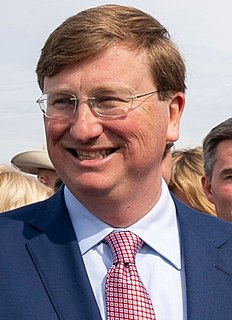Цитата Джорджа Сороса
Как общество мы не можем жить без моральных соображений. Мы должны защищать общественное благо. А рынки для этого не предназначены, поэтому нам нужен политический процесс.
Связанные цитаты
Те люди, которые придают моральным соображениям гораздо больший вес, чем соображения целесообразности, составляют сравнительно небольшое меньшинство, может быть, пять процентов людей. Но, несмотря на свою численную неполноценность, они играют большую роль в нашем обществе, потому что это голос совести общества.
Наша вдохновленная Конституция мудро предназначена для защиты от чрезмерности политической власти, но она мало что может сделать для защиты нас от чрезмерного аппетита или от индивидуального безразличия к великим принципам или институтам. Таким образом, любое существенное нарушение моральных устоев американского народа в конечном итоге ставит под угрозу Конституцию.
Но нам нужно нечто большее, чем более широкое понимание того, что такое хорошее общество, или моральная и политическая критика существующего рыночного фундаментализма, охватившего американское общество, нам также необходимо создать новые формы солидарности, новые и широкие социальные движения, которые выходят за рамки изолированных и раздробленная политика текущего исторического момента.
Лучшая защита [для демократии, для общественного блага] — это агрессивность, агрессивность вовлеченного гражданина. Нам нужно подтвердить этот медленный, трудоемкий, неэффективный и скучный процесс, который требует нашего участия; это называется «быть гражданином». Общественное благо — это не то, что вы можете видеть. Это не статично. Это процесс. Это процесс, посредством которого строятся демократические цивилизации.
Нет доказательств существования бога, нет последовательного определения бога, нет хороших аргументов в пользу бога, хороших положительных аргументов против бога, нет согласия между верующими относительно природы или моральных принципов бога, и нет необходимости в боге. Мы можем жить счастливой, нравственной, продуктивной жизнью без такой веры, и мы можем делать это лучше.
Давайте твердо придерживаться великой истины, что общины несут ответственность так же, как и отдельные лица; что ни одно правительство не является респектабельным, если оно не справедливо. Без незапятнанной чистоты общественной веры, без священного общественного начала, верности и чести, никакая правовая машина не может придать достоинство политическому обществу.
Для меня то, что является политическим, очень личное. Политика не является этой абстрактной идеей. Законы – это правила, которые определяют, как мы живем. То, что мы едим, является политическим. То, как мы одеваемся, зависит от политики. Место, где мы живем, политическое. На все эти вещи влияет принятие политических решений, и важно быть частью этого процесса.
Рынки — это социальная конструкция, они сделаны из институтов. Мы в демократическом обществе создаем рынки, мы создаем рынки, мы создаем их, и мы не должны отдавать рынки узкой группе людей, которые регулируют их и управляют ими в своих интересах, а должны управлять ими демократически для общее благо.
Общество — любое общество — определяется как совокупность взаимных выгод и обязанностей, наиболее явно воплощенных в общественных учреждениях: государственных школах, публичных библиотеках, общественном транспорте, государственных больницах, общественных парках, общественных музеях, местах отдыха, государственных университетах и т. д. .
При массовой телевизионной демократии, которая есть у всех нас сегодня, невозможно принимать принципиальные политические решения с долгосрочными последствиями без того, чтобы общественность не знала об этом, без понимания общественностью хотя бы части из них, без того, чтобы общественность формировала свое суждение, разнородное как это может быть.



































